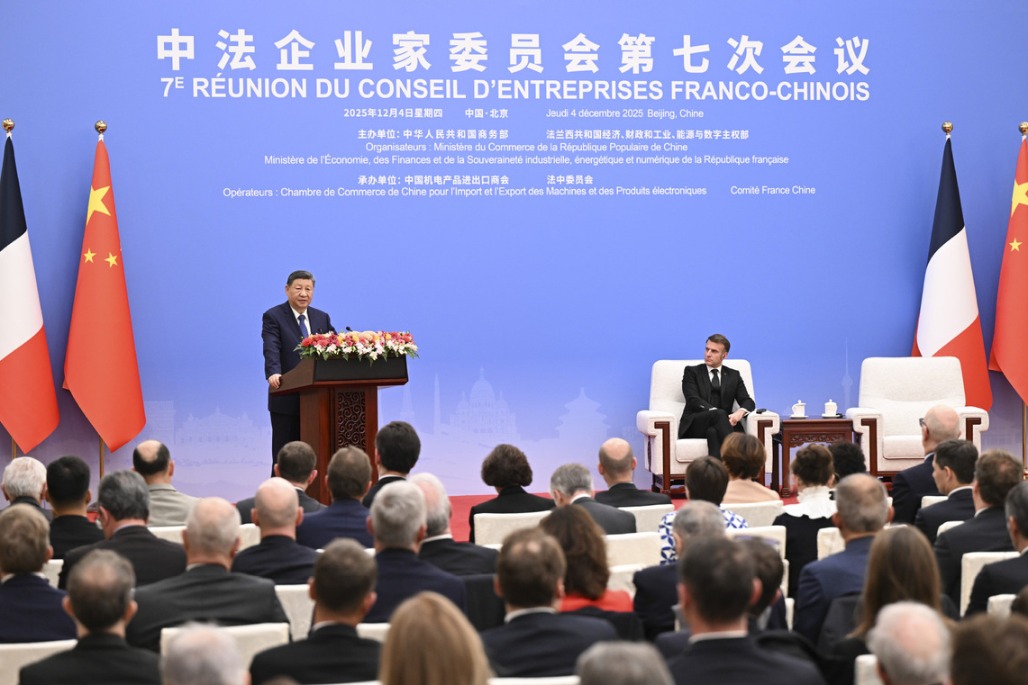Challenge is on for new French PM
Former EU negotiator Michel Barnier tasked with uniting National Assembly
By MOHAMMAD ARIF ULLAH in Paris | China Daily | Updated: 2024-09-07 07:38

France's new Prime Minister Michel Barnier, 73, the former EU Brexit negotiator, now faces the challenge of uniting a deeply divided National Assembly, which is split into three main blocs, to create a functional government.
Barnier is also a former foreign minister from the center-right Les Republicains party, or LR.
President Emmanuel Macron is relying on the experience of the former European Commissioner and his negotiation skills to maintain stability in the government.
Barnier's political career has spanned several decades, beginning in the mid-1990s under the late president Jacques Chirac. His appointment comes nearly three months after snap legislative elections left France in political deadlock, with no party winning an outright majority. The New Popular Front, or NFP, a left-wing alliance, won the most seats, with Macron's coalition finishing second, ahead of the far-right National Rally, or RN.
Following Thursday's decision, the left-wing NFP alliance expressed its anger and vowed to back no-confidence motions against Barnier in the National Assembly.
"He starts with many strengths. It's up to him to show that he knows how to adapt to the national terrain. He is not a novice," said Pascale Joannin, general manager of the Robert Schuman Foundation, a think tank specializing in European issues, on Friday on the French TV channel France Info.
However, as the oldest prime minister in the history of the Fifth Republic, Barnier's challenge will be to remain in office as long as possible and avoid being overthrown. He is expected to win 235 seats with support from Macron's coalition (166 seats), the LR (47 seats) and the centrist LIOT group (22 seats). This total still falls short of the absolute majority of 289 seats required.
He faces a difficult path as several MPs from Macron's camp have already set conditions for their support. Agnes Pannier-Runacher, a former minister and MP from Macron's party, warned their MPs would not give the new government "a blank check or censure it in principle", but would be "vigilant about the line that will be taken". She made these comments in an interview with French daily Le Monde published on Friday.
Meanwhile, the RN and its allies hold 142 seats and the left-wing NFP alliance has 193 seats. With the left-wing MPs already announcing a censure motion, the abstention of the far right will be essential for Barnier's government to survive.
Barnier's appointment has been welcomed by several European leaders due to his previous role as a European Commissioner. Italian Prime Minister Giorgia Meloni, German Chancellor Olaf Scholz, European Commission President Ursula von der Leyen and British Prime Minister Keir Starmer have all expressed their support.
Far right reaction
Marine Le Pen, a prominent figure in the discussions over the new prime minister, was closely involved in this week's negotiations. "This news was not warmly welcomed by RN supporters," said Christelle Craplet, director of BVA Opinion, on the French Public TV channel Public Senat on Thursday.
RN lawmaker Sebastien Chenu told the French private news channel BFM TV on Thursday that the party would wait to hear what Barnier has to say about immigration and reforms to France's voting system.
Macron's negotiations with the National Rally have caused unease in his camp. After dissolving parliament following the far right's strong performance in June's European election, Macron has campaigned to prevent extremist parties from gaining power in Paris.
"The constitution is primarily focused on the prime minister, making the president of the republic more of an arbitrator," explained Bertrand-Leo Combrade, a professor of public law at the University of Poitiers, on Thursday on Public Senat.
There is no legal deadline for a new prime minister to form a government. However, the current political context in the Assembly is unstable, with no bloc holding an absolute majority, meaning it could take several days or even weeks for Barnier to establish a coalition government.
Time is running out on the parliamentary front. The government must present its budget to the Assembly by Oct 1, when the ordinary parliamentary session resumes, adding urgency to Barnier's task.
The writer is a freelance journalist for China Daily.
























